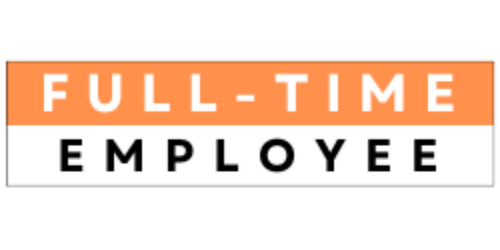Choosing the right business structure for your real estate ventures can make or break your tax savings and long-term strategy.
Whether you’re investing in rentals, flipping homes, or developing properties, the entity you choose: LLC, Partnership, S-Corporation, or C-Corporation impacts how much tax you pay, how much protection you have, and how easily you can scale.
1. Sole Proprietorship
A sole proprietorship is the simplest form of business structure, where the individual and the business are legally the same entity. It is ideal for those who are just starting and want to test the waters without complex requirements.
Pros:
- Simple setup with no formal paperwork.
- Full control and direct access to profits.
- Easy tax reporting on Schedule C.
Cons:
- No liability protection.
- It is harder to separate personal and business finances.
- Limited access to tax planning strategies.
Best for: New investors testing the waters or owning one rental property.
2. Limited Liability Company (LLC)
An LLC offers a flexible structure, combining the protection of personal assets with the benefits of pass-through taxation. It’s widely used by real estate investors looking to limit their personal liability while maintaining operational flexibility.
Pros:
- Protects your personal assets from lawsuits.
- Flexible tax classification (can elect to be taxed as an S-Corp later).
- Simple bookkeeping and pass-through taxation.
Cons:
- Must file annual reports and maintain state compliance.
- Self-employment tax applies unless S-Corp election is made.
- Multi-member LLCs need an operating agreement.
Best for: Real estate investors seeking liability protection and flexibility.
3. Partnership (Multi-Member LLC or LP)
Partnerships allow two or more individuals to come together to manage and share the profits of a business. This structure is ideal for real estate ventures where multiple investors combine their resources and expertise.
Pros:
- Pass-through taxation avoids double tax.
- Easy to split profits among partners.
- Allows combining resources and expertise.
Cons:
- Each partner is personally liable unless set up as an LLP.
- Conflicts may arise without a clear agreement.
- Must file a separate partnership return (Form 1065).
Best for: Joint real estate ventures or family investment partnerships.
4. S-Corporation
An S-Corporation is a corporation that allows profits to pass through to the shareholders' personal tax returns, avoiding double taxation. This structure is often used by active real estate businesses like flipping or property management that want to save on self-employment taxes.
Pros:
- Avoids double taxation.
- Allows salary plus distribution split to reduce self-employment tax.
- Can own property and run real estate-related businesses.
Cons:
- Must pay yourself a reasonable salary.
- Stricter recordkeeping and payroll compliance.
- Not ideal for long-term rental properties due to passive income limits.
Best for: Active flippers, agents, or management businesses generating high income.
5. C-Corporation
A C-Corporation is a separate legal entity that offers liability protection and allows for profit retention and reinvestment at a lower corporate tax rate. It’s best for large-scale operations or businesses that plan to reinvest most of their profits.
Pros:
- Can retain earnings for reinvestment.
- Lower corporate tax rate (21%).
- Ideal for long-term growth or high-expense companies.
Cons:
- Subject to double taxation (corporate plus dividend level).
- Complex compliance and separate tax filings.
- Harder to pass through real estate losses to personal return.
Best for: Large-scale development or holding companies with multiple revenue streams.
Read more: Cost Segregation and Its Benefits- Learn how entity setup influences depreciation and cash flow.
Watch this video to learn how to choose the best business structure for asset protection and tax savings, covering LLCs, S-Corps, C-Corps, and partnerships.
CPA Insight: The Hybrid Approach
Many investors use LLCs for property ownership and an S-Corporation for active operations (like property management or flipping). This hybrid model maximizes liability protection and tax efficiency while keeping your strategy flexible and audit-ready.
Action Steps
- List your income sources (active vs. passive):
Identify whether your income is active (e.g., property management, flipping) or passive (e.g., rental income). This distinction helps determine the most tax-efficient structure for your business activities.
- Evaluate your liability exposure:
Assess the risks associated with your properties and business. Consider how much protection you need for your personal assets from potential lawsuits or other liabilities.
- Meet with a CPA to model your potential tax savings:
Consult a CPA to analyze how different structures impact your tax liabilities. They can model your savings based on income type, entity choice, and available deductions.
- Choose an entity that matches your long-term real estate goals:
Select a business structure (LLC, S-Corp, C-Corp, etc.) that aligns with your growth plans and operational needs, balancing liability protection with tax efficiency and scalability.
FAQs
Q1: Can I change my business structure later?
Yes. Many investors start as an LLC and later elect S-Corp status when income grows. Always consult your CPA before switching to avoid unexpected taxes.
Q2: Should I hold rental properties in an S Corporation?
Generally, no. It’s not advisable since transferring property in or out of an S-Corp can trigger taxable gains and reduce flexibility. Use an LLC instead.
Q3: Can one LLC own multiple rental properties?
Yes, but it’s often safer to separate high-value or high-liability properties into different LLCs for better protection.
Q4: Is a C Corporation ever worth it for real estate?
Only for large-scale or development projects that plan to reinvest profits rather than distribute them, or when building a portfolio company with employees.
Q5: What’s the most tax-efficient setup for flippers?
An S-Corporation or an LLC taxed as an S-Corp helps reduce self-employment taxes while maintaining liability protection.
Need Help Choosing the Right Structure?
Need help creating a compliant, customized entity setup?
Reach out to INVESTOR FRIENDLY CPA® for personalized guidance on LLC, S-Corp, and partnership structures built for tax efficiency and growth.
Our Services Include:
- Entity structuring and long-term wealth strategies
- Customized family payroll plans
- IRS-compliant job descriptions and documentation
- Payroll setup for children and spouses
- Guidance on travel, auto, and business expense compliance
Toll-Free: 1-800-522-6091
Website: www.investorfriendlycpa.com
Schedule a FREE Consultation Call Today and take the first step toward smarter tax planning.
- The right structure depends on your goals like asset protection, tax efficiency, and management flexibility.
- LLCs are the most common for holding rental properties.
- S-Corporations work best for active businesses like flipping or management companies.
- Partnerships are ideal for family or joint ventures.
- C-Corporations suit large, reinvestment-heavy operations.
- A hybrid approach (LLC for ownership and S-Corp for active income) often delivers the best balance of protection and savings.






.png)

.png)












